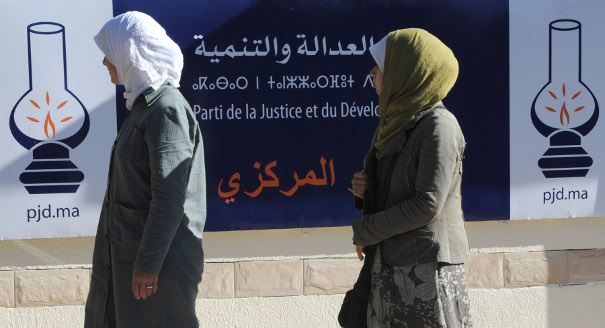Source: 21st Century Parties
Turbulence among political parties in established Western democracies is rife—whether it is the harsh churning within the British Labor Party, the serious challenges facing Spain’s two traditional parties, the notable gains by the right-wing parties in Denmark, France, and Sweden, or the unusually open-ended candidate competition within the U.S. Republican Party. These developments are taken by some observers as proof that mainstream Western political parties are losing, or indeed have already lost credibility as sources of ideas or assistance to counterparts in new or struggling democracies. But this need not be the case. At least it need not be if Western party aid groups can move even more decisively than they have so far away from their old habits.
In particular, they need to deemphasize training efforts to help build party organizations in other countries along the lines of an idealized model of what a well-established party should look like. Instead, Western party aid should take a more specific problem-centered approach, focusing on the vexing issues that are staring Western political parties in the face and that are also present in the political life of many developing and post-Communist countries. The spirit should be one of mutuality of both problems and responses, openly recognizing that Western parties are facing just as much public skepticism and criticism in many countries as are their counterparts in other parts of the world, and just as many uncertainties about how to grapple with changing political developments.
Some issues for such an agenda:
- Populism: How can democratic political parties best engage with and respond to rising new currents of populism and assertive populist figures of dubious democratic fidelity?
- Intolerance: What can political parties do to help tamp down the flames of intolerance that have been flaring up in many societies as a result of new pressures relating to migration and refugees, divisive identity politics, and radicalism?
- New forms of civic activism: How should political parties change themselves and their relationship to citizens in response to the widespread reality of new forms of civic activism, such as non-formalized movements or protest waves that erupt around the issue of systemic corruption?
- Tech generation: How should political parties reach and engage a rising generation of voters who rely heavily on social media and other online instruments as their main source of information, news, engagement, and debate?
- Inequality: How can political parties convince citizens that they are part of the solution rather than the problem with respect to rising inequality?
In all areas of international support for democracy, the old assumed line between a set of countries that have largely achieved success and a set of countries looking for lessons and help has been effaced by global political change. In all areas of democracy assistance, aid groups are struggling to adapt their efforts to a world in which democratic deficiencies are remarkably similar in many old and new democracies alike. Given that party aid is a more compact domain of international assistance than most other areas, and that Western party aid specialists are often close to the ground politically, they should be able to be leaders within the wider assistance community in crafting new types of programming that embody a productive spirit of mutuality learning and avoid old patterns of “provider” and “recipient.”
This article was originally published on 21st Century Parties.







